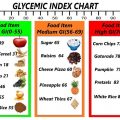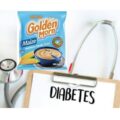Hepatitis refers to an inflammatory condition of the liver. It’s commonly caused by a viral infection, but there are other possible causes of hepatitis. These include autoimmune hepatitis and hepatitis that occurs as a secondary result of medications, drugs, toxins, and alcohol.
Nigeria, with an estimated population of 190 million people, has a Hepatitis B prevalence of 8.1% and Hepatitis C at 1.1%, based on a recent Nigeria HIV/AIDS Indicator and Impact Survey(NAIIS) report. There is no specific treatment for acute hepatitis B. Therefore, care is aimed at maintaining comfort and adequate nutritional balance, including the replacement of fluids lost from vomiting and diarrhea. Most important is the avoidance of unnecessary medications. Acetaminophen/Paracetamol and medication against vomiting should not be given.
With Hepatitis, your nutrition needs may change depending on your liver function. It’s all about how you treat your own body; nutrition and physical fitness are important ingredients for a healthy liver. The liver metabolizes everything you eat, so a healthy diet is especially important for those living with liver diseases such as hep B. Furthermore, since many people with the disease suffer from low energy or fatigue, a fuel-rich diet is a key way to give your body as much vigor as possible. You should drink plenty of water and observe a good balance between all of the basic food groups, including whole grains, proteins, dairy, fruits, vegetables, and fats—making sure to keep the saturated fats in your diet to a minimum. Here are some other nutrition tips:
Consider Carbs Carefully and Skip the Sweets
Carbohydrates fuel the body. There are two kinds of carbs—complex and simple. Foods with starch and fiber are complex carbs, and the body metabolizes these more slowly than it does simple carbs. Minimally processed, “non-white” foods such as beans and whole grains (brown rice, oatmeal, barley, quinoa) are higher-quality carbs. Starchy, low-fiber foods (rice, potatoes, pasta) are mostly made up of simple sugar called glucose. These carbs provide poor quality fuel or “empty calories” to our diets.
While too much glucose will pack on the pounds, fructose is the carb to skip. Fructose is sugar. Fructose is largely broken down in the liver, and excess fructose can raise triglycerides, create insulin resistance, and may cause fatty liver disease. The latest U.S. Dietary Guidelines (2015-2020) recommend limiting added sugars to less than 10 percent of calories per day. Other names for sugar are agave, fruit juice concentrates, high-fructose corn syrup, honey, molasses, and maple syrup.
Reach for Fruits and Veggies
A healthy goal is to cover half of your plate with vegetables and fruit. The U.S. Department of Agriculture (USDA) recommends that women older than 30 consume around one and a half cups of fruit and two to two and a half cups of veggies per day; the recommendation for men is two cups of fruit and three cups of vegetables. Although fruit has fructose in it, it also has fiber and other nutrients. The liver metabolizes fruit slowly, making it a good choice when you are trying to satisfy a craving for sweets.
Protein Power
Protein is an essential building block your body needs to repair and replace tissue that has been damaged. Look for a wide array of proteins, including lean meats, poultry, fish, beans, eggs, nuts, seeds, milk, yogurt, and cheese.
Go Easy on Fats and Fried Foods
While having some fats in your diet is healthy, it’s important not to go overboard. In particular, try to avoid saturated and trans fats. Saturated fats are mostly found in animal products, such as beef, lamb, pork, poultry skin, cheese, butter, whole milk, cream, and lard. Palm oil is highly saturated. Trans fats are used less in food manufacturing since the Food and Drug Administration questioned their safety. Also called trans fatty acids, trans fats are formed when hydrogen is added to vegetable oil to make a more solid shortening or margarine, a process called hydrogenation. Try to avoid trans fats altogether.
Color Your World
Variety is the spice of life. A good rule of thumb when shopping or preparing meals is to ultimately get a good spectrum of color on your plate, particularly when choosing fruits and vegetables. Different natural colors are reflective of a spectrum of important nutrients. Consider the difference between a highly processed, high-fat, sodium-packed fast-food meal of entirely tan food and a nutritious plate of brown rice, bright orange salmon, and dark green spinach.
Limit Processed Foods and Sodium
You should try to cut out all processed foods, in particular fast food. In addition to containing fat and caloric levels that can often go through the roof, processed food is typically drenched in salt, also known as sodium. Sodium can be particularly harmful to people with liver disease because when the organ is damaged to the point where it fails to produce enough proteins in the blood, it releases more fluid into the tissues to try to even out the imbalance. Salt can then worsen this effect because too much sodium causes you to retain fluids in order to lessen its concentration. A result may be swollen legs or bellies. While the average American consumes 3,000 to 5,000 milligrams of sodium each day, the limit is 2,300 mg a day. People over 51, African Americans, and those with high blood pressure, diabetes, or chronic kidney disease should stick to less than 1500 mg a day. If you have cirrhosis, discuss sodium limits with your health care provider.
Eat Real Food
So-called junk foods are low in the nutrients your body actually needs, so consuming them will only narrow the nutritional benefits of your overall caloric intake.
Control Portions
Be sensible and consider how large helpings and high-calorie food can affect your body weight.
Avoid Raw and Undercooked Shellfish
Strictly speaking, this advice is not for nutritional reasons but for safety ones. Raw or undercooked oysters, clams, and other shellfish may harbor Vibrio vulnificus, bacteria that are particularly harmful to people with liver disease.
Forgo Foraged Mushrooms
Certain wild mushrooms contain toxins that can destroy even the healthiest livers. Do not eat foraged mushrooms unless you are 100 percent sure that they are safe.
Drink Coffee
Consumption of caffeinated coffee on a regular basis has been associated with reduced formation of liver fibrosis, slower disease progression, and decreased risk of cirrhosis and liver cancer. Decaf coffee and green tea have not been shown to benefit or harm the liver.
Advanced liver disease can lead to malnourishment, causing significant weight loss. It is important to get enough calories and to make sure they are coming from the best possible sources-in other words, not from fatty foods, sweets, or low-fiber carbohydrates. The liver may be having trouble processing proteins, in which case a physician can prescribe nutritional supplements that supply protein in a form that is easier to absorb. SEE: How to Spot Fake Hepatitis B Vaccine






